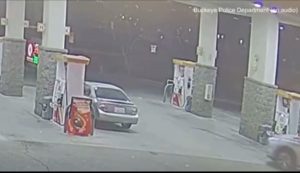In a shocking incident this week, hundreds of students at Hillcrest High School in Queens, New York, engaged in a nearly two-hour rampage through the school’s halls. The chaos unfolded when students discovered that a teacher had attended a pro-Israel rally, prompting a pre-planned protest that spiraled into violence. The targeted teacher, whose Facebook profile featured a photo from the rally with a sign proclaiming, “I stand with Israel,” became the focal point of the unrest.
A group of students, reportedly radicalized, organized the protest through a group chat, exposing the teacher’s attendance and calling for a riot. The situation escalated as hundreds of students flooded the hallways, chanting, jumping, and waving Palestinian flags. Attempts to enter the teacher’s classroom were thwarted by school staff, leading to intensified calls for the teacher’s dismissal.
The NYPD and school administrators, alerted to the brewing unrest, managed to secure the teacher in a locked office, preventing potential harm. The incident, documented on TikTok with videos set to music, showcased the extent of the disruption, including vandalism in the school’s premises.
Amidst the aftermath of the Hillcrest High School incident, Chancellor David Banks, a Hillcrest graduate, addressed the situation during a town hall meeting with Manhattan parents. Acknowledging the heightened emotions tied to Middle East events, Banks emphasized the ongoing efforts to understand and address the incident.
Chancellor Banks, with a connection to the school where the incident occurred, now finds himself at the center of discussions around the incident’s implications. As a figurehead in the education system, Banks is tasked with collaborating closely with students and teachers to navigate the aftermath of the troubling event.
Also Read: Who is Tom Larson? Boston Bruins and Red Sox sportscaster dead at 84
The Department of Education condemned the incident, pledging to actively investigate and ensure the safety of both students and staff. The incident raises broader concerns about the rise of intolerance and radicalization in educational settings and prompts a reevaluation of strategies to foster a safe and inclusive learning environment.






